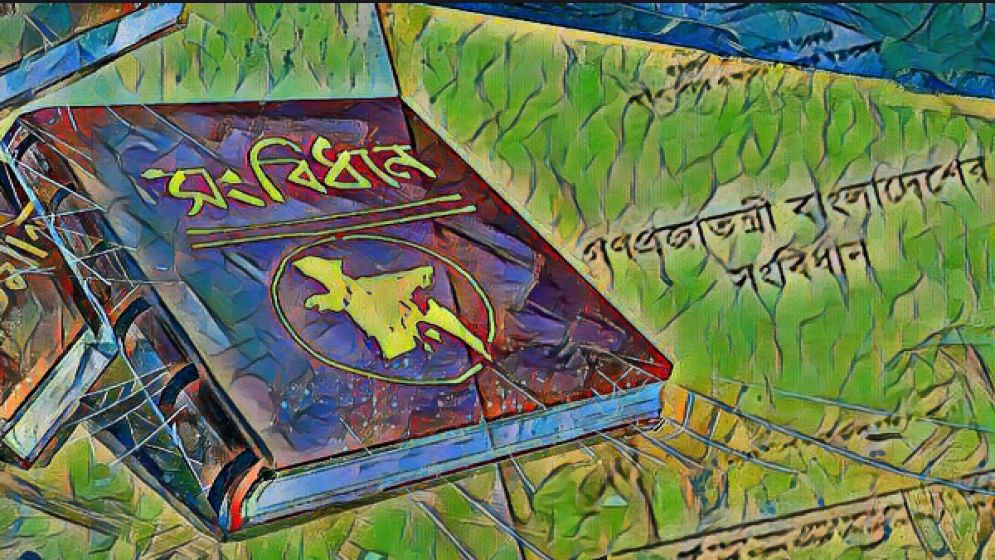Why the effectiveness of the “Basic Structure Doctrine” has been nullified

Eminent civil society activist Badiul Alam Majumdar, along with several others, has recently initiated a writ petition challenging the legitimacy of the Fifteenth Amendment to the Constitution.
In addition, the Bangladesh Nationalist Party (BNP), Bangladesh Jamaat-e-Islami, Insaniyat Biplob, and four individual lawyers have joined the proceedings as intervenors.
The case is currently being heard by a High Court Division bench comprising Justice Farah Mahbub and Justice Debashish Roy Chowdhury.
Driven by my academic interest as a student of constitutional law and jurisprudence, I have been closely observing the hearings over the past several days and have come up with my own observations.
First, I have noted a significant aspect of the legal arguments presented by the petitioner's counsel, the intervenors' lawyers, and even the Attorney General have drawn upon a shared jurisprudential foundation: the 'Basic Structure Doctrine.'
This doctrine, which asserts that certain fundamental principles or frameworks of the Constitution are beyond the scope of parliamentary amendment, even when proper constitutional procedures are followed, has a well-established history.
In Bangladesh, it was firmly entrenched in legal discourse through the landmark Eighth Amendment case (1989). Its roots, however, trace back to Indian jurisprudence, most notably in the seminal Kesavananda Bharati case (1973).
Second, the Basic Structure Doctrine was formally established in the landmark Eighth Amendment case through a majority decision (4-1) by the Supreme Court judges.
Justice Badrul Haider Chowdhury authored the principal judgment, with Justices Shahabuddin Ahmed and Muhammad Habibur Rahman concurring, each providing distinct reasoning.
However, it is crucial to note that this case did not yield a clear consensus on the precise components or the definitive list of what constitutes the "basic structures" of the Constitution.
In his dissenting opinion, Justice ATM Afzal argued against the application of the Basic Structure Doctrine, presenting a thoughtful and rigorous critique.
His dissent is widely regarded as a milestone in the evolution of Bangladesh’s legal jurisprudence, offering a rich array of arguments, theories, and legal perspectives. These contributions remain a cornerstone of the country's legal scholarship.

How Awami League misuses the doctrine
Third, the current issue arises from the ruling Awami League's alleged misuse of the Basic Structure Doctrine to consolidate power through the Fifteenth Amendment (2011).
This amendment, rather than upholding constitutional principles, has been criticized for undermining the doctrine itself.
Article 7A was introduced, stipulating that anyone who repeals, invalidates, suspends, or even attempts or conspires to alter the Constitution—or any of its provisions—would face the death penalty.
Additionally, the introduction of the Eternity Clause (Article 7B) declared certain "fundamental provisions" to be permanently unamendable.
These changes have sparked widespread criticism, as they are seen as a distortion of legal and constitutional norms.
By designating even controversial provisions as "basic structures," effectively rendering them immune to amendment, the amendment has been accused of mocking both jurisprudence and the rule of law.
This maneuver, critics argue, subverts the original intent of the Basic Structure Doctrine, using it as a shield for authoritarianism while depriving the people of Bangladesh of their democratic agency.
Fourth, during the hearing of the writ petition challenging the Fifteenth Amendment to the Constitution, I carefully observed the submissions of the Attorney General, Ruhul Quddus Kajal, and Shishir Monir.
All three based their arguments on the jurisprudential foundation established in the Eighth Amendment case, particularly the Basic Structure Doctrine.
In essence, they all drew legitimacy for their arguments from past precedent. However, this reliance on the Eighth Amendment judgment raises significant concerns, particularly when viewed against the backdrop of the distortion introduced by the Awami League government through Article 7B.
My primary objection, from a jurisprudential perspective, lies here: the Awami League's manipulation of the Basic Structure Doctrine via Article 7B cannot simply be legitimized or rendered acceptable by appealing to the earlier Eighth Amendment judgment.
Article 7B has not only redefined but effectively destroyed the foundational principles of the doctrine by making controversial constitutional provisions unamendable.
To now rely on the Eighth Amendment ruling as a jurisprudential crutch without addressing this distortion undermines the integrity of the doctrine itself.
Furthermore, our Supreme Court has shown limited precedent or enthusiasm for judicially reviewing constitutional amendments that favor any incumbent government.
Notably, no legal challenges were brought against the Fifteenth Amendment during the Awami League's tenure in power, including by Badiul Alam Majumdar or other stakeholders.

The possible outcome of the writ
The ongoing case before the High Court Division bench, comprising Justice Farah Mahbub and Justice Debashish Roy Chowdhury, may result in the Fifteenth Amendment being declared unconstitutional.
However, if this is achieved by leaning on the same Basic Structure Doctrine that has already been distorted, it will amount to a hollow victory.
Such an outcome, while politically significant, will contribute little to the advancement of constitutional jurisprudence.
Globally, the Basic Structure Doctrine remains a limited concept, adopted in only a few jurisdictions such as India, and it has not gained widespread acceptance.
Constitutional law has evolved considerably since the doctrine's inception, and clinging to it without addressing its contemporary relevance or the distortions it has undergone does little to further jurisprudential progress.
In essence, the Awami League has left the Constitution in such a fragmented and degraded state that it can no longer be salvaged through piecemeal amendments.
Despite this reality, our veteran politicians continue to emphasize the importance of "constitutional continuity," clinging to a notion that seems increasingly detached from the present challenges.
During the hearings on the Fifteenth Amendment, the submissions made by the Attorney General, as well as the lawyers representing the BNP and Jamaat-e-Islami, reflect a similar mindset.
While they demand the repeal of the Fifteenth Amendment—particularly the removal of Articles 7A and 7B—they simultaneously advocate for retaining certain provisions.
This selective approach exposes an unwillingness to confront the broader structural issues plaguing the Constitution.
Attempting to mend these constitutional wounds through judicial intervention and patchwork solutions is neither an elegant nor a sustainable strategy.
So, the time has come to recognize the need for a fresh start: we must draft a new Constitution. This is the only viable path to achieving true freedom and restoring constitutional integrity.
What is needed now is a national dialogue—open discussions, rigorous debates, and thoughtful deliberations—on how this process should unfold. How will a Constituent Assembly be formed? What principles and frameworks will guide the drafting of this new Constitution?
These are the critical questions we must address as we chart a course forward. The time to act is now.
—--
Zahirul Islam Musa is a lawyer at the Bangladesh Supreme Court. He can be contacted at zahirulmusa@gmail.com
(Translated from Bangla by Faisal Mahmud)

